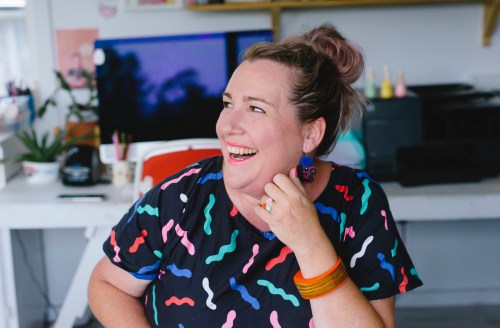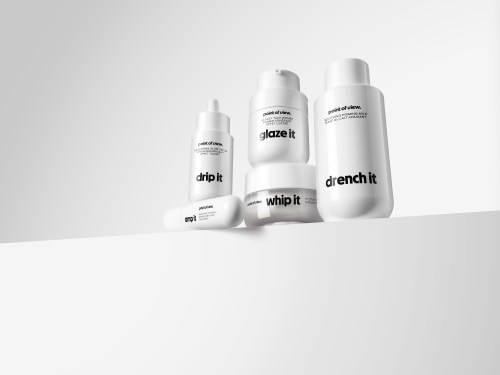Many of us know at least one older person who’s been diagnosed with dementia—aka a loss of cognitive function, including thinking, remembering, and reasoning, that interferes with daily life. Alzheimer’s is the most common type of dementia, and rates of the disease have been on the rise over the past 20 years in the U.S. In fact, Alzheimer’s disease is currently the sixth-leading cause of death here, affecting some 5.8 million Americans each year.
While an aging baby boomer population is partly accountable for these numbers, rising rates of insulin resistance, diabetes, and high blood pressure in the U.S. are also likely contributing factors, since these conditions increase dementia risk. “More disease means more cumulative trauma [to the brain],” says Dean Sherzai, MD, PhD, a neuroscientist and the co-director, along with his wife Ayesha Sherzai, MD, of the Alzheimer’s Prevention Program at Loma Linda University.
Although certain genes impact a person’s odds of developing dementia, Dr. Sherzai notes that only 3 percent of people carry two copies of a pair of genes that mean they’ll be diagnosed with Alzheimer’s no matter what they do. The rest of us, he says, can significantly reduce our risk of cognitive decline through the lifestyle choices we make—so much that that he believes 80 to 90 percent of premature dementia cases can be prevented.
Dean and Ayesha Sherzai met 17 years ago volunteering as medics in Kabul, Afghanistan. Both brain researchers and neurologists by trade, the pair quickly discovered they each had two grandparents who died from Alzheimer’s. They dated for a year before marrying and moving back to the U.S. to take on dementia.
In his work at Georgetown University and the National Institutes of Health, Dr. Dean Sherazi was dismayed that billions of dollars’ worth of research and drug development wasn’t making any progress in the battle against Alzheimer’s. “It was the same thing over and over again. We were doing nothing, pill after pill, study after study,” he says. He says a myopic approach to the chronic disease of aging failed to see the big picture.
The pair decided to pursue their research at Loma Linda University in Northern California as the co-directors of the university’s Brain Health and Alzheimer’s Prevention program. They chose Loma Linda specifically because a local group of 9,000 Seventh-day Adventists, who are vegetarians and don’t drink or smoke, make up the only “Blue Zone” in the United States; research has found that they have significantly lower rates of cancer, heart disease, and diabetes than the general U.S. population.
Dr. Dean Sherzai says his and other research over the years consistently shows that those with the lowest rates of dementia live a healthy lifestyle. He and Dr. Ayesha Sherzai synthesized this lifestyle into what they’ve coined the NEURO method for brain health:
- Nutrition
- Exercise
- Unwind (stress reduction)
- Restore (sleep), and
- Optimize (challenge your brain)
They say these five steps, along with not smoking and reducing your alcohol consumption, are proven to optimize brain health and reduce the risk of dementia, in part by reducing the risk of chronic conditions like diabetes and high blood pressure. Best of all? “The NEURO plan is free, and it’s something everyone can apply,” Dr. Sherzai says.
Want to know how to have a healthy brain? Here’s your step-by-step guide to the ‘NEURO’ method:
Nutrition: Eat a plant-based diet
The brain is nourished by nearly 400 miles of arteries and capillaries and continuously needs energy, even while you sleep. (In fact, although it weighs just 3 pounds, or roughly 2 percent of your total body weight, your brain consumes roughly 20 percent of the calories you consume.) The brain’s outsized dependence on your cardiovascular system means it’s even more susceptible to toxins and environmental assaults than the rest of your body, Dr. Dean Sherzai says. And damage to arteries appears to age the brain. “Fatty, sugary foods damage the lining of vessels, so it damages the neurons fed by those capillaries,” he explains. Eating healthy fats and slow-releasing complex carbs, on the other hand, supports arterial health, which helps build the connections between neurons to keep your brain running at full power.
There is no one-size-fits-all brain diet, although Dr. Sherzai says the Mediterranean and MIND diets are good examples of healthy, brain-healthy eating plans. “Whatever you call it, at its core it’s plant-based,” says Dr. Sherzai—i.e., rich in fruits, grains, vegetables, legumes, nuts, and seeds. These foods are rich in antioxidants, which help stave off free radical damage; they also provide much of the B12, choline, and protein your brain needs to do its job without having to take a supplement. And by focusing on fresh, whole foods, you’ll reduce your intake of processed foods and nutrients like saturated fat and sugar that can harm brain health.
Exercise: Stay active—even if that simply means walking more
Study after study suggests exercise supports brain health. Physical activity not only increases blood flow to the brain (which builds brain volume and clears out the arteries), but it’s also been shown to increase a chemical in the brain called BDNF, which Dr. Dean Sherzai calls a fertilizer for neurons. “It increases the connections between neurons, which is a main factor of cognitive growth,” he says.
Exercise doesn’t have to mean back-to-back digital HIIT classes in your living room; research has found that simply walking reduces the risk of dementia. “One 25-minute brisk walk increases the very structure of brain and blood supply,” Dr. Dean Sherzai says. Ideally, try to do some form of moderate exercise like walking for at least 30 minutes, five times per week—and supplement that by getting up and moving throughout the day.
Unwind: Practice mindfulness and de-stress
Stress can be good for you, helping you to accomplish goals and move forward in life. But the wrong kind of stress creates a “metabolic storm” in the pituitary gland, says Dr. Sherzai, releasing a storm of chemicals like cortisol and adrenaline that impact your thyroid, insulin levels, immune system, and brain health. “By age 60 all your systems are overwhelmed,” he explains. “Chronic stress affects the body more than we can imagine.”
It’s important to identify the persistent, negative stressors in your life (like a job that you hate or a toxic personal relationship), then delegate, reduce, or eliminate them. “Engineer your life toward the parts you like,” he says. And bone up on stress-reducing techniques to practice regularly. And while mindfulness meditation isn’t a magic cure, Dr. Dean Sherzai says it can help you to feel calmer and more focused, which ultimately supports brain health. Whether it’s yoga or breathing exercises, find time to practice mindfulness and de-stress every day.
Restore: Get 7 to 8 hours of sleep per night
“Sleep is massively important for brain health,” says Dr. Dean Sherzai. When we sleep, our brains consolidate memories and clean out waste accumulated throughout the day. It’s important to get a full seven to eight hours per night involving cycles of deep sleep. “The best spa you can have is a planned sleep environment, with no noise or light,” he says.
How can you sleep better? Try to avoid eating for one-and-a-half to two hours before bedtime—especially high-energy sugary or fatty foods. “Digestion gets slower with age, and it will run into and interfere sleep,” Dr. Dean Sherzai says. The brain likes reliable patterns, so try going to bed around the same time every night to prime it for sleep. Avoid your phone, TV, and computers for 30 minutes to one hour before bedtime if possible, since blue light turns on the circadian part of brain that wakes you up. And try this cognitive behavioral therapy (CBT) hack if you can’t fall or stay asleep: Write your worries on a sheet of paper by your bed as they come to you. “After a couple of months, your brain disassociates worry from sleep,” he says.
Optimize: Be social and challenge your brain
Learning is possibly the most important strategy to battle cognitive decline, but “when people retire, they’re less mentally active,” says Dr. Dean Sherzai. From the nun study to the London taxi driver study, tons of research shows that challenging the brain protects brain health. “Your brain needs purpose-driven challenge. [Without it], the brain goes down significantly in size,” he says. “Each neuron can make a couple or as many as 30,000 connections. As we get older they fry away, which is why you need to challenge your brain. That level of protection can’t be fathomed by a vitamin concoction.”
Try to keep your mind challenged at a high level—learn a new language, pick up a hobby like chess, or play a musical instrument. Set a specific, measurable, time-bound goals, like learning to learn to play “Hey Jude” on the guitar in the next month. Your brain will thank you for it.
—reviewed by Smita Holden, MD
Sign Up for Our Daily Newsletter
Get all the latest in wellness, trends, food, fitness, beauty, and more delivered right to your inbox.
Got it, you've been added to our email list.











